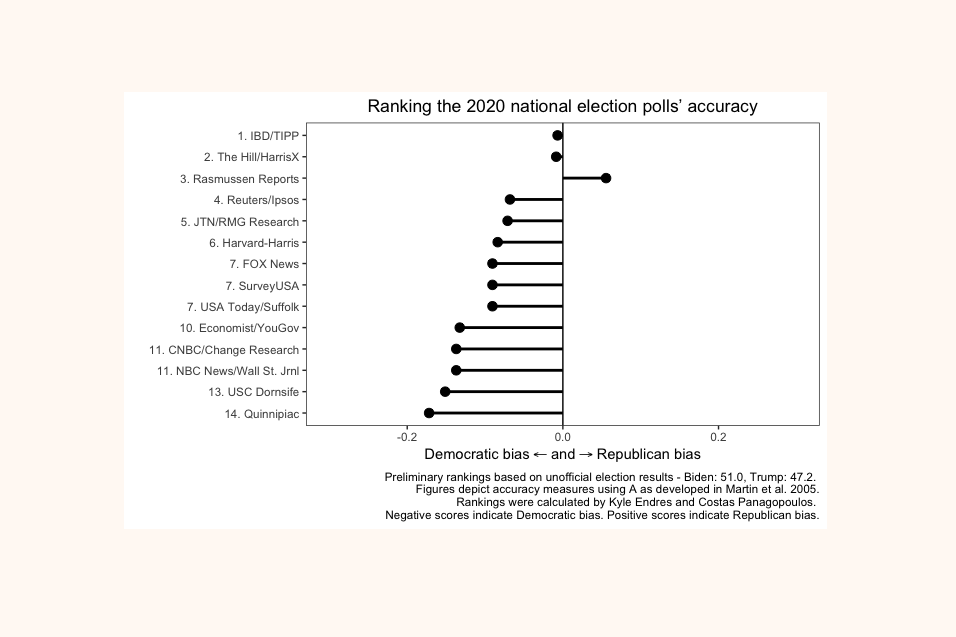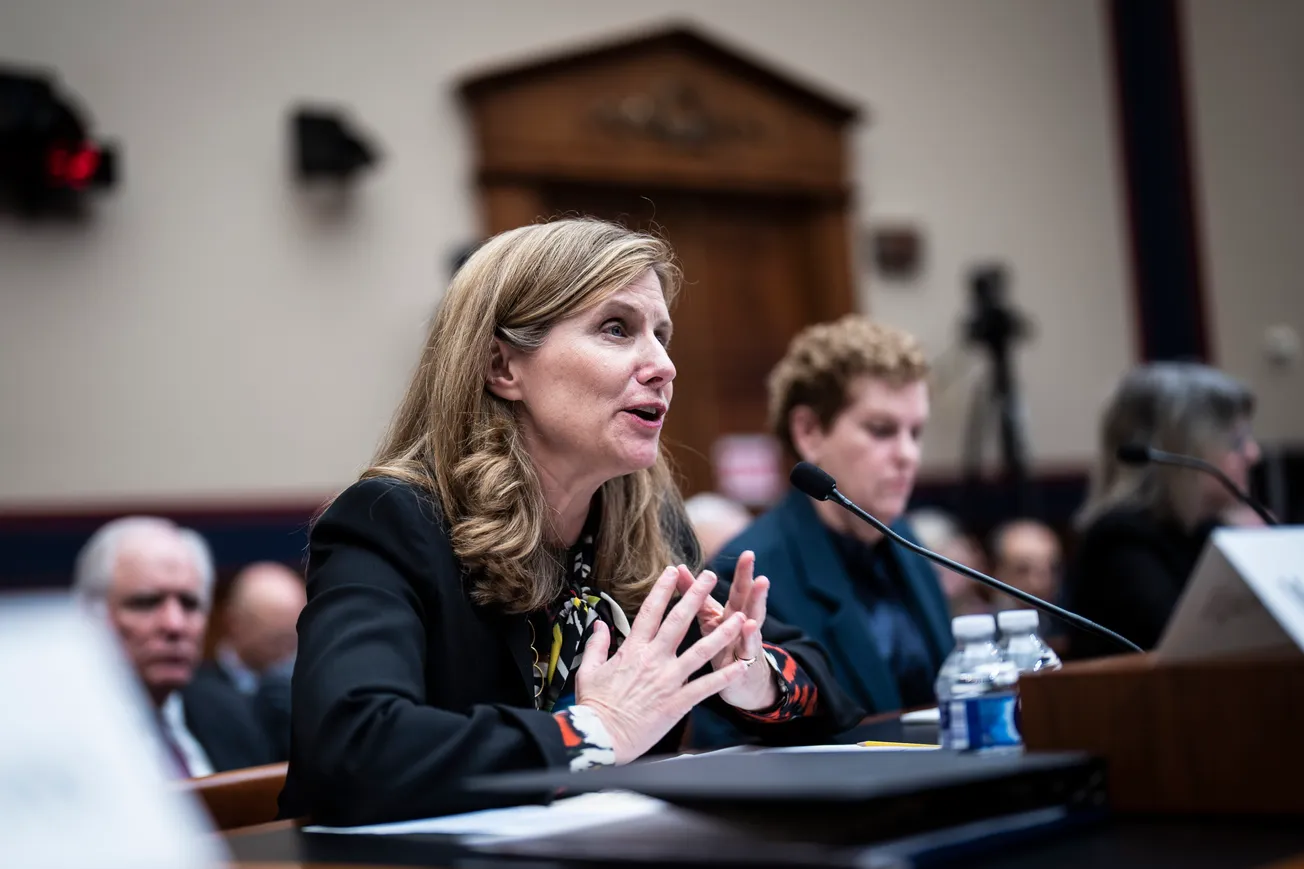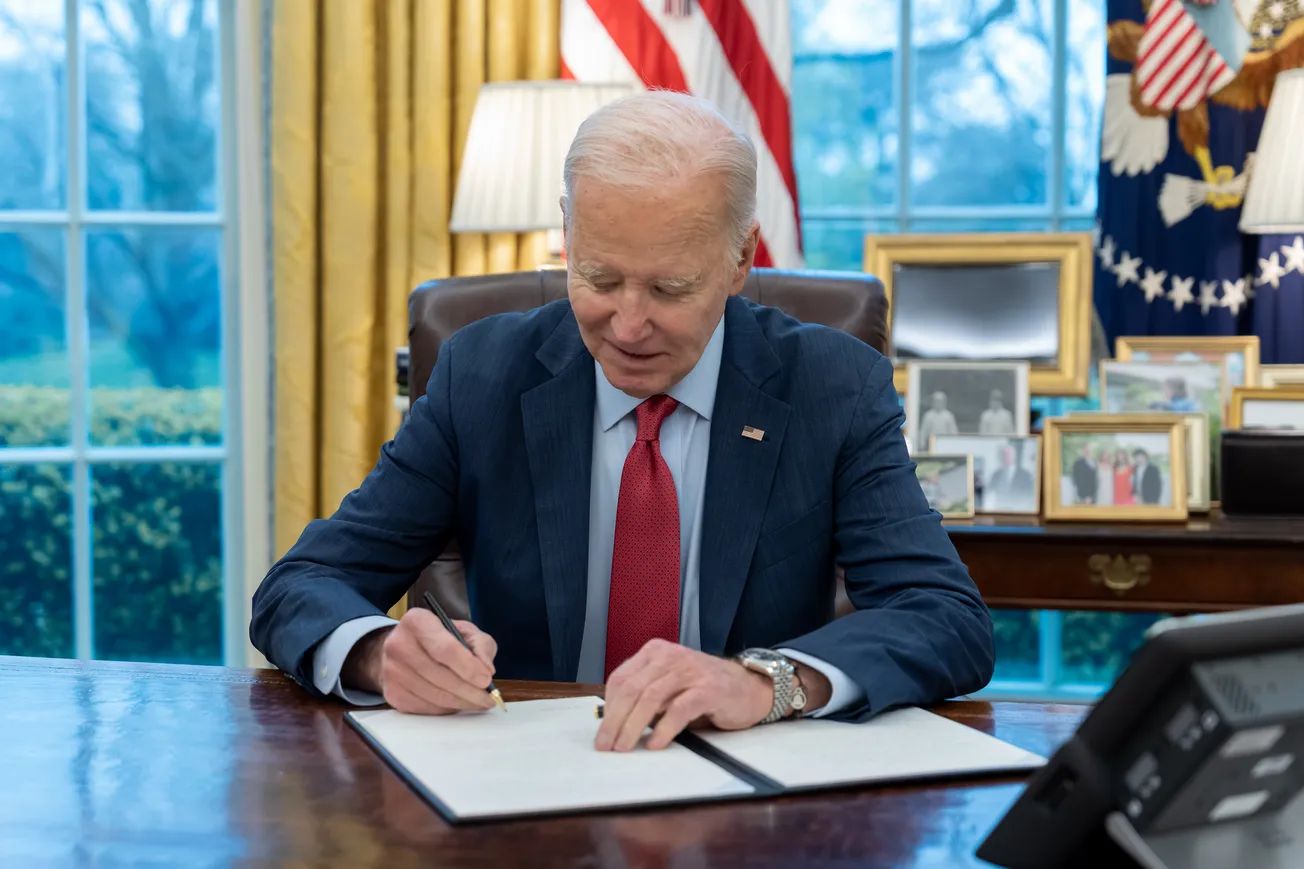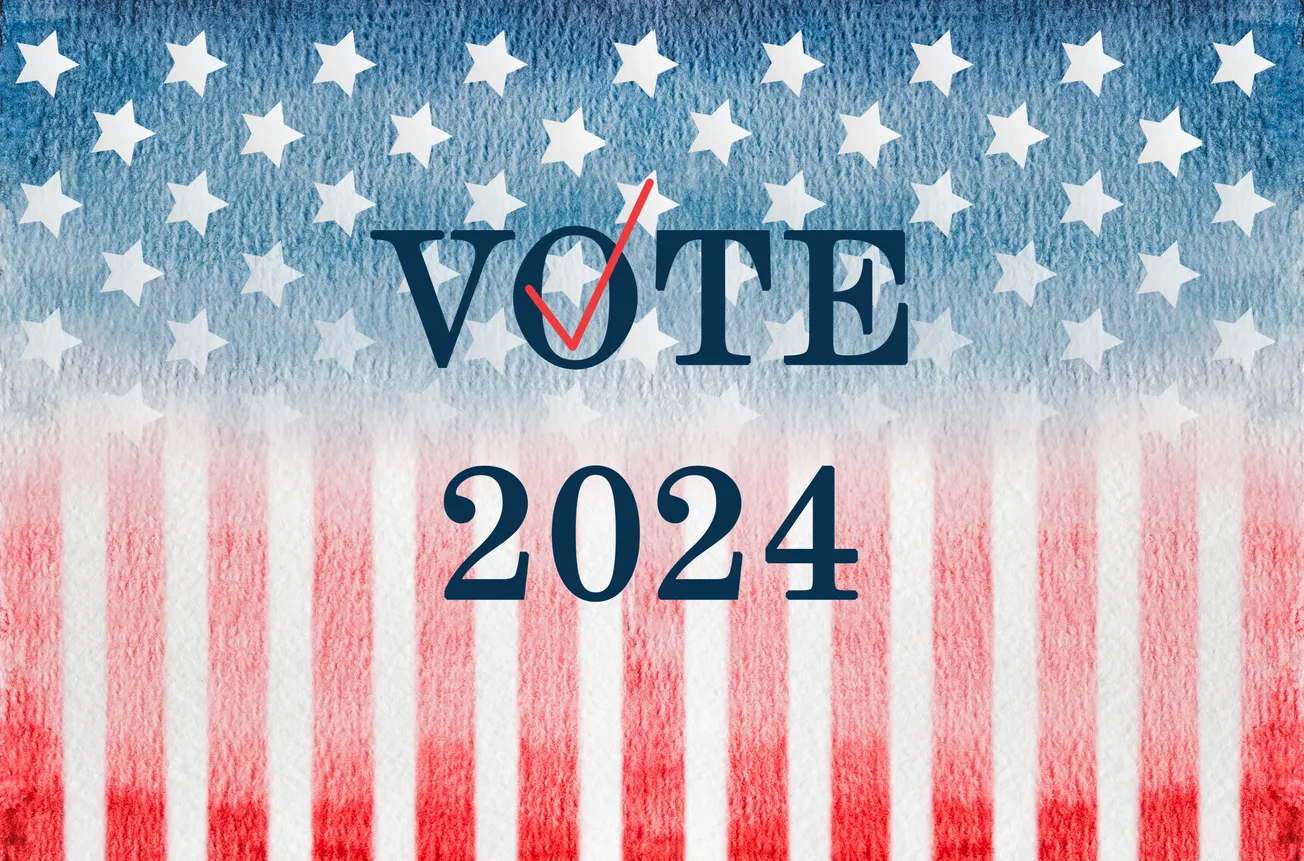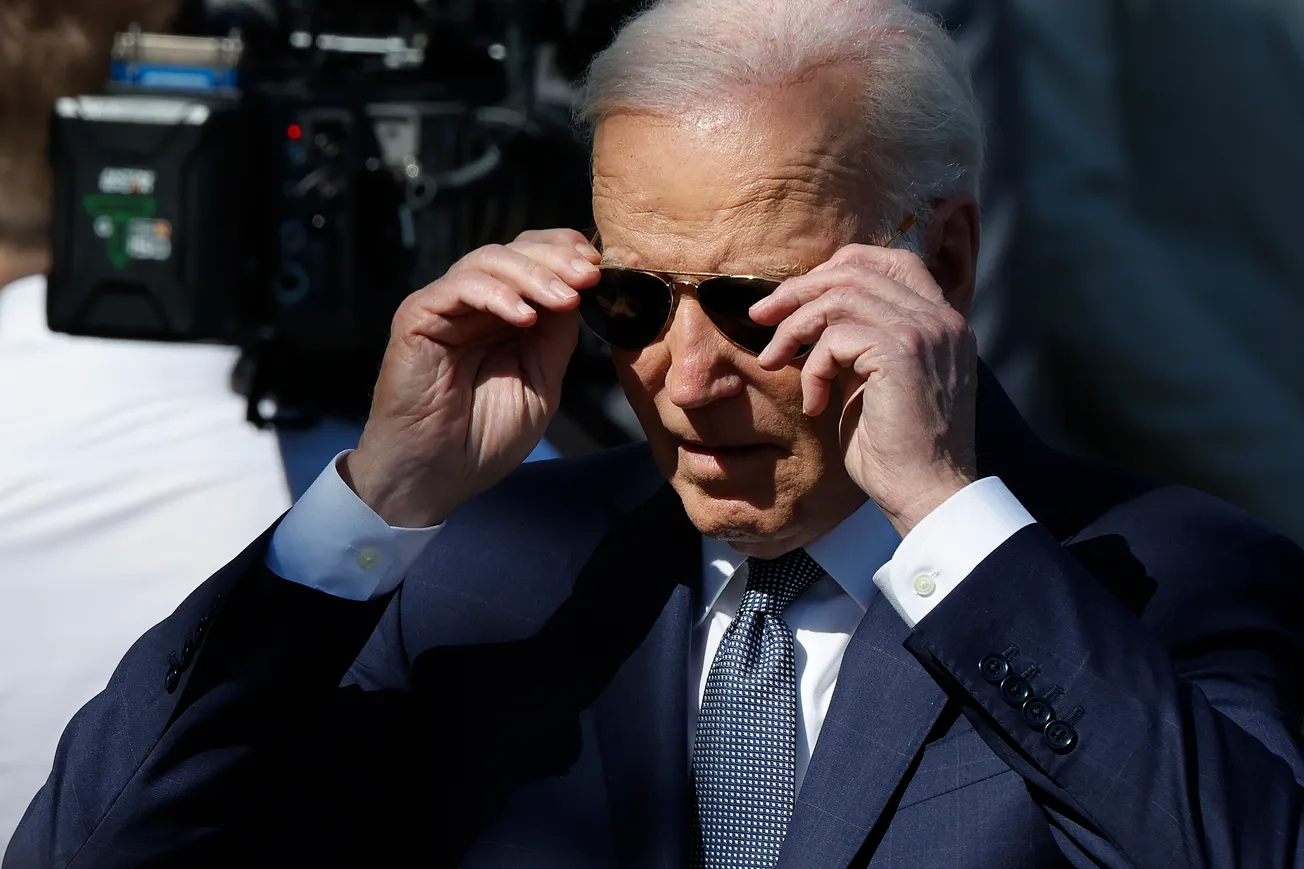While the big media might not be worried about the wave of antisemitism that emerged after Israel was attacked by Hamas on Oct. 7, average Americans are. A hefty majority now call antisemitism in the U.S. a “serious” problem, the latest I&I/TIPP Poll shows.
Following the recent disturbing outbreak of antisemitism across the country, ranging from an upsurge of antisemitic demonstrations on college campuses to a spate of ugly harassment incidents against individual Jewish Americans, a majority of Americans agree there’s a big problem.
In our latest national online poll, taken Nov. 29-Dec. 1 from among 1,464 registered voters, we asked the following question: “Generally speaking, how serious is the problem of anti-Semitism, or prejudice against Jewish people, in the U.S. today?”
The overwhelming response was not comforting for those who might have hoped that antisemitism was a relic of the past. Some 76% of all Americans called the problem either “very serious” (43%) or “somewhat serious” (33%). A mere 14% said it was either “not very serious” (10%) or “not serious at all” (4%).

Another 10% said they were “not sure.” The poll has a margin of error of +/-2.6 percentage points.
Differences among the three major political groupings in America – Democrats, Republicans and independents – were not great. The share of Democrats (83%) and Republicans (77%) responding that antisemitism was a “serious” problem in the U.S. were, statistically speaking, basically even.
Independents, at 67%, were the lowest of the 36 demographic groups regularly tracked by I&I/TIPP, but even that was still a strong majority. Plainly, average Americans are worried.
But this raises a question: Who do Americans think are the groups most afflicted with antisemitic ideas?
I&I/TIPP asked a follow-on question: “Generally speaking, how serious is the problem of anti-Semitism, or prejudice against Jewish people, among the following groups, in the U.S. today?” The choices were liberals, conservatives, young adults and universities.
Recall that, overall, 76% in the poll thought America overall suffered from antisemitism. None of the individual groups listed in the preceding paragraph get close to that level, though all are above 50%. They range from conservatives (51%) and liberals (54%) to young adults (61%) and universities (61%).
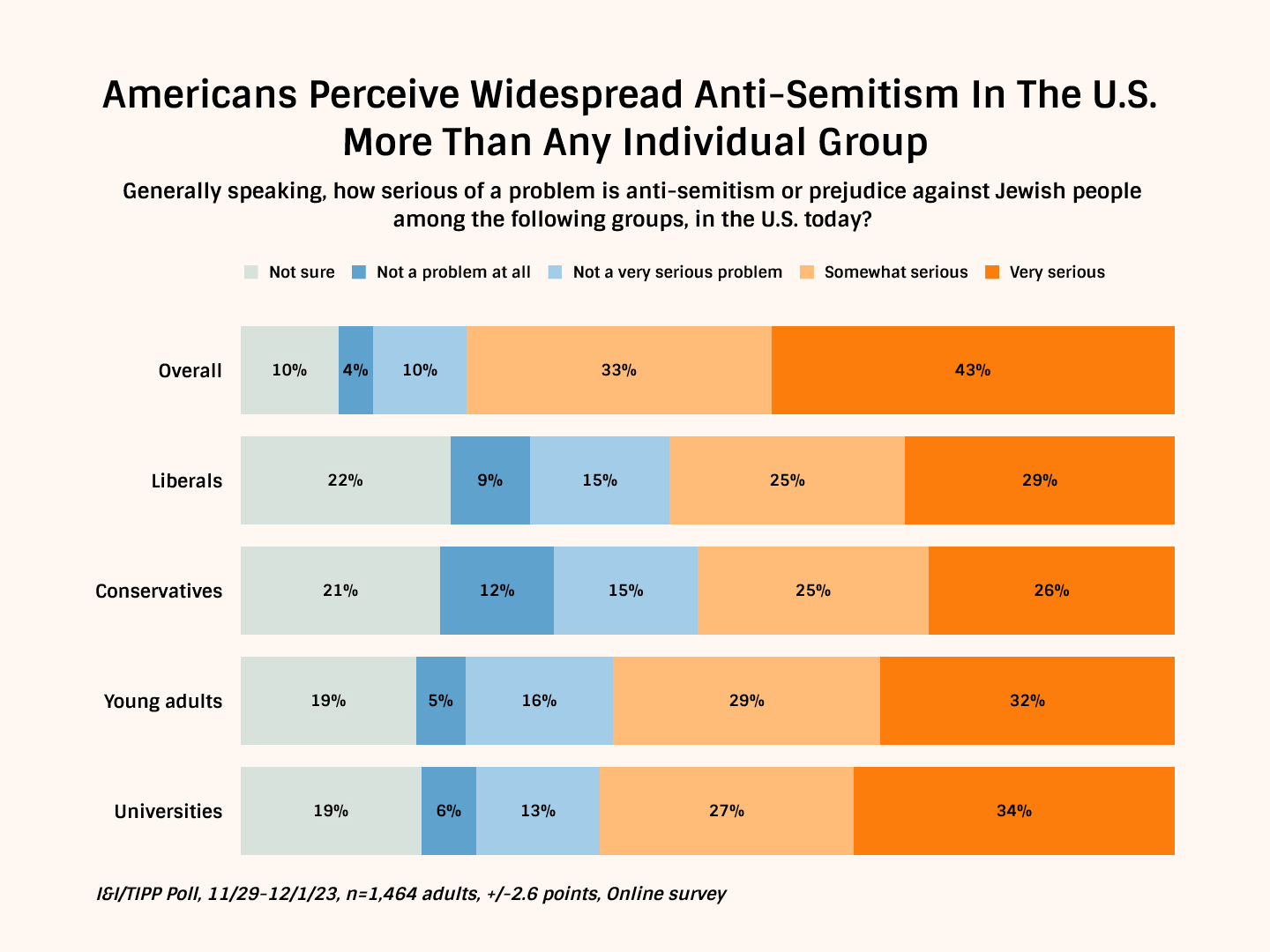
So while no one group gets the bulk of the blame, it’s pretty clear that the biggest problem is seen being among the young and universities.
This might not be so surprising, given recent news reports of young Americans’ attitudes and openly antisemitic demonstrations on college campuses.
But a closer look at the data shows that, in one regard, Democrats and Republicans are far apart: Democrats (65%) are most likely to finger conservatives as the main reason for antisemitism’s recent upsurge, while 51% also blame liberals. Meanwhile, 65% of Republicans fault liberals for antisemitism, but just 42% say conservatives.
As for independents, they pretty much evenly apportion the blame for “serious” antisemitism among liberals (46%) and conservatives (45%), and young adults (53%) and universities (54%).
Given the seriousness that Americans assign to the recent antisemitism outbreak, I&I/TIPP asked the follow-on question: “How would you grade (Biden’s) handling of anti-Semitism, or prejudice against Jewish people in the country?”
Respondents were asked to assign a grade of A, B, C, D or F to Joe Biden’s efforts.
Once again, sharp partisan differences emerge. Overall, by nearly 2-to-1, Americans gave Biden failing grades (43% D or F) over passing grades (24% A or B). (Some 23% answered C, or average.)
But that masks the big difference by party affiliation. For instance, 45% of Democrats give Biden an A or a B, versus just 9% of Republicans and 16% of independents. On the other hand, only 20% of Democrats give Biden failing grades, versus 69% of Republicans and 44% of independents.
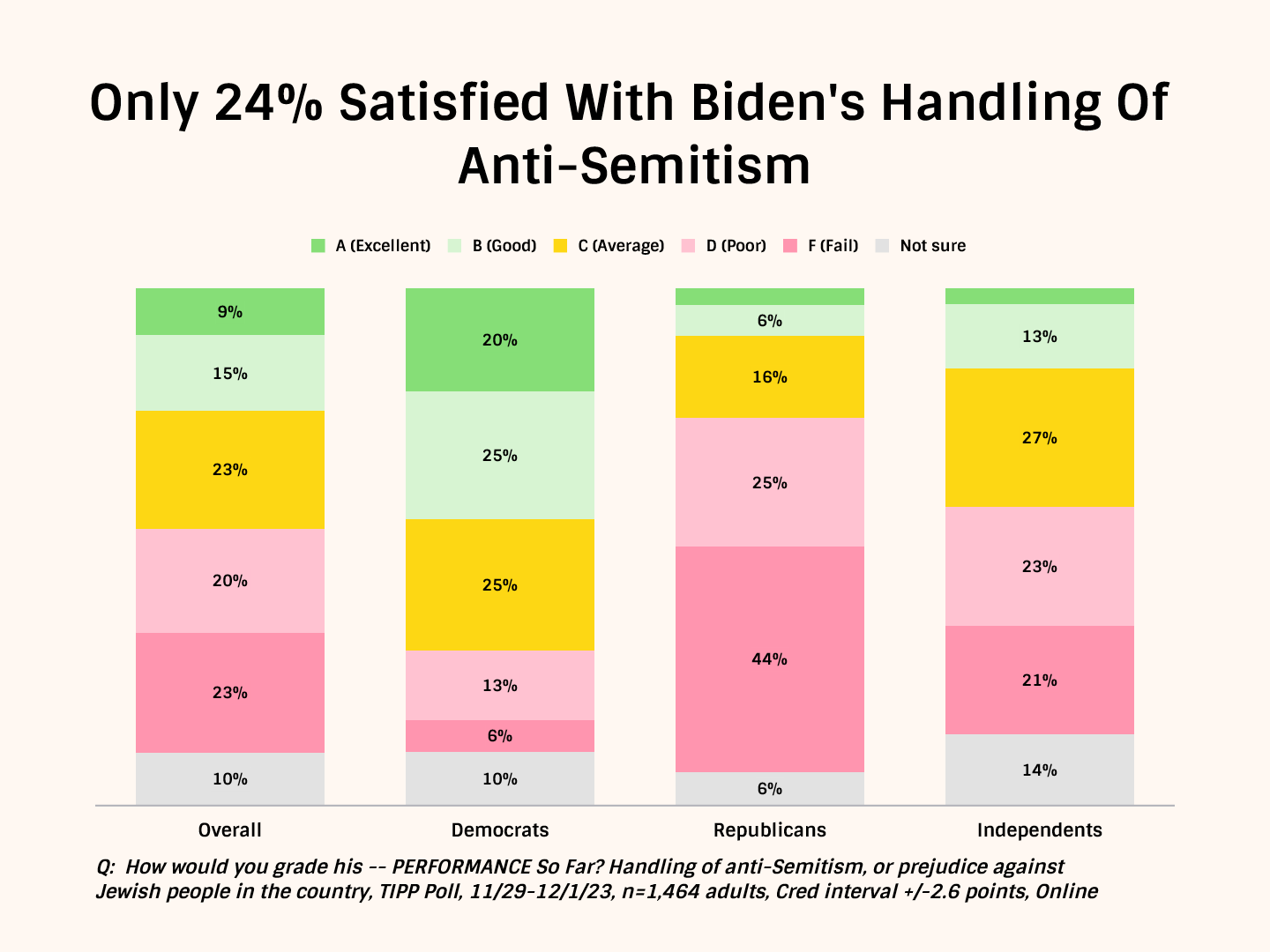
The Oct. 7 surprise terrorist attacks by Hamas against Israel unexpectedly seem to have revived an ugly strain of antisemitism, both here and abroad, that once seemed on its way to extinction. It’s back, and it’s real, especially among youths and on college campuses.
Stories of bigots tearing down posters of Israeli hostages, polls suggesting some Americans support the terrorist attacks, and throngs of young anti-Jewish, anti-Israel protestors equating Zionism with “terrorism” have brought back memories of the mid-20th century’s ugly outbreak of antisemitism, which culminated in the Nazi atrocities of the 1930s and World War II.
As recent polls show, if there’s any regret over the attacks among the Palestinians themselves, it’s not evident. A Reuters Poll just last week found that 72% of Palestinians now support Hamas’ terrorist attacks on Israel.
Biden’s response to the attacks has been deemed a failure, even by some in his own party. Foreign policy analysts on both sides say Biden’s decision to restore billions in aid to Iran and look the other way as it continues its nuclear weapons program has further destabilized the Mideast. There is no question of Iran’s involvement, both direct and indirect, in the Oct. 7 attacks.
Worse, critics say, are his attempts to kill off former President Donald Trump’s highly successful Mideast peace initiative, which brought Israel together with several of its Arab nation neighbors for the first time ever. Others have faulted his administration’s foreign policy hires, heavily weighted toward analysts and advisers favorable to Iran.
Meanwhile, his own administration’s underlings remain in open revolt over his tepid backing of Israel as it confronts yet another threat to its existence. They’ve made clear they’d like to see Hamas, not Israel, win this war.
I&I/TIPP publishes timely, unique, and informative data each month on topics of public interest. TIPP’s reputation for polling excellence comes from being the most accurate pollster for the past five presidential elections.
Terry Jones is an editor of Issues & Insights. His four decades of journalism experience include serving as national issues editor, economics editor, and editorial page editor for Investor’s Business Daily.
Our performance in 2020 for accuracy as rated by Washington Post:
